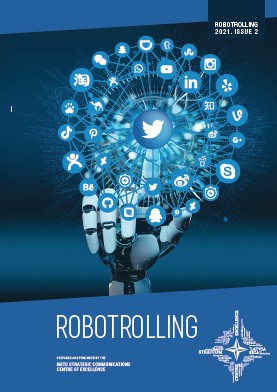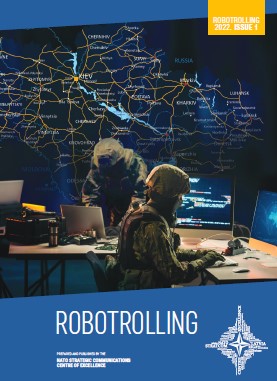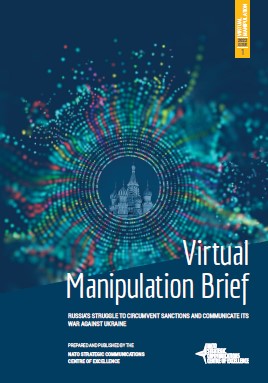
ROBOTROLLING 2/2021
ROBOTROLLING 2/2021
Keywords: Manipulation on social media platforms; Twitter; Russian-language bot activity; online discussions; information space; GDELT;
In this edition of Robotrolling we track the most significant increase in inauthentic Russian-language social media activity we have observed since we began in 2017. While the level of bot activity remains much lower than four years ago, the uptick is concerning. The increased activity coincided with the spring and summer military exercise season, and the period running up to the Russian Federation’s Zapad exercises, scheduled for September 2021. While fake activity increased in the Russian-language space, we observed no increase in English-language activity, either from bots or from human-controlled accounts. In this edition of Robotrolling, we introduce the Global Database of Events Location and Tone (GDELT). This database of news articles helps map how the conversation about NATO in Poland and the Baltics is covered by news media, and serves as a contrast to the environment observed on Twitter and VK. This contrast reveals that in April 2021—as Russian troops mobilized along the Ukrainian border—inauthentic Russian accounts were also disproportionately active online. We round off the issue with a discussion of how AI can help us better understand the global news environment in near-real time, based on conversations with StratCom COE expert Gundars Bergmanis-Korāts and GDELT-founder Kalev Leetaru.
More...

